We are looking for talent that can bridge the gap between business and technical goals – CTO, Dream11
DREAM11
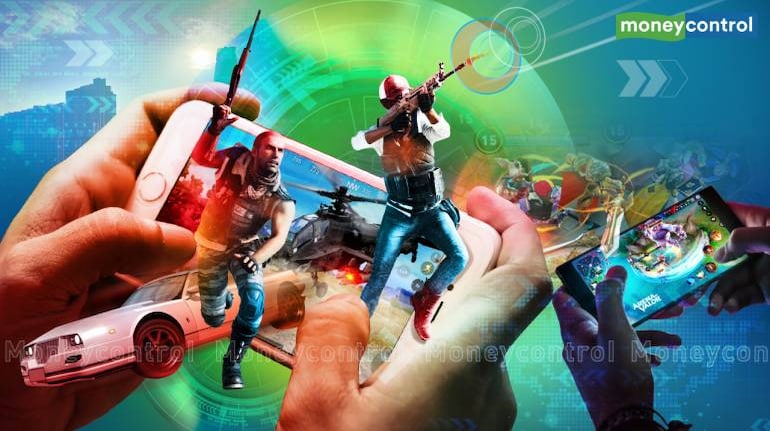
According to a TeamLease Digital report, currently 50,000 individuals are working directly in the gaming industry, with 30 percent of the workforce being programmers and developers. (Illustration by Suneesh Kalarickal)
India’s gaming industry is booming. The market hit $2.6 billion in financial year 2022 and is projected to reach $8.6 billion in FY27, expanding at a compound annual growth rate of 27 percent. But it’s not just about the numbers.
Around two-thirds of serious gamers want to explore gaming as a full-time or a part-time career, according to the HP India Gaming Landscape Study 2022.
While becoming a gamer remains the most preferred choice, other options like becoming an influencer or a gaming software developer also interests the potential job candidates.
Moneycontrol interacted with a cross-section of gaming industry leaders to find out how candidates can prepare themselves to enter the booming gaming industry and which job roles are in demand.
According to a TeamLease Digital report, currently 50,000 individuals are working directly in the gaming industry, with 30 percent of the workforce being programmers and developers.
Further, close to 100,000 new jobs will be created in the sector by FY 23 and this is projected to increase by 50 percent, taking the industry’s overall growth trajectory to more than 113 percent by 2025.
Kishore Sambasivam, vice-president, human resources, OnMobile Global, says talent is still limited if one looks at core game designers and product managers.
“Apart from the paucity, what’s aggravating matters, is the aggressive compensation packages, and ESOPs (employee stock option plans),” Sambasivam said.
He observed that the limited talent is also choosy and reluctant to jump ship unless they see a good value proposition and proof of concept.
“So unless a company has a good product roadmap and a solid employee value proposition, it isn’t easy to hire niche gaming talent,” Sambasivam said.
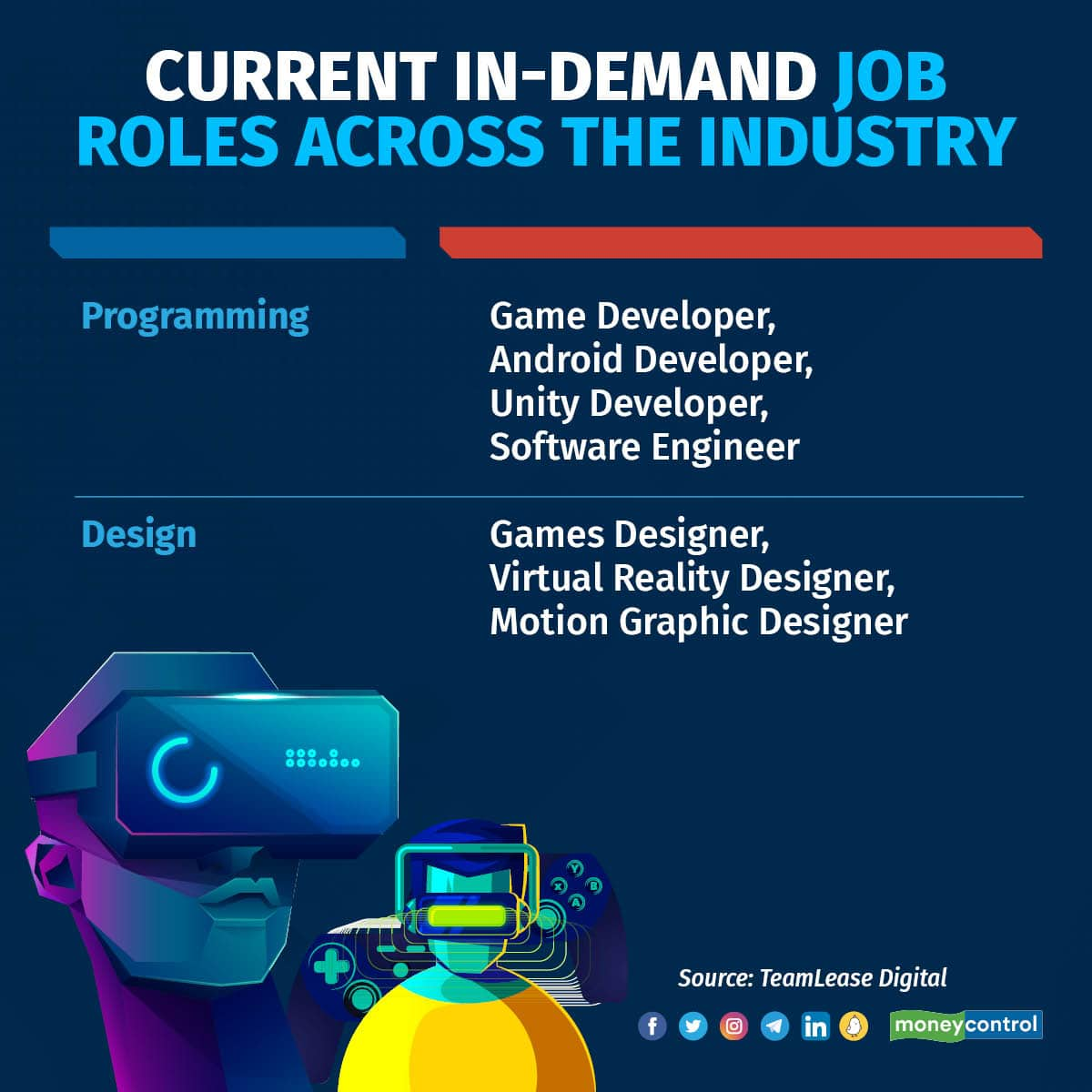
Grooming talent
Finding individuals who can dive into the creative aspects of the game like building an interesting universe and narrating a story are few, said Somnath Meher, Associate GM, Zynga India.
And he noted that gaming requires a set of very nuanced skill sets in addition to general product management and engineering.
These include specialised functions like Game Design, Economy Design, Art & Animation, and Tech Art, each of which requires specialised training.
“The avenues for grooming talent for these have been relatively low in India. It has been a challenge for most game publishers to find individuals who are passionate about games, have the technical competencies and unique creative mindset to thrive in the industry,” Meher added.
Need to go local
Experts say it’s time for India to go local on games. Not just development, but also the concept of the games.
“We need to now create homegrown games that gamers will enjoy. Hence, policy intervention is crucial for India to be ‘Aatmanirbhar’ (self-reliant) in game development, and creating a talent pool,” said Yashashvi Takallapalli, vice-president and general manager at Glance Gaming.
This becomes more important when gaming has also broken age barriers on the platform, with interest in gaming and game streaming coming from a wide age spectrum.
Glance Gaming Trends Report 2022 showed that older generations have shown a greater inclination towards playing casual games – 27 percent of users in the 45-54 and 19 percent in the 55+ age groups are engaging with this game category.
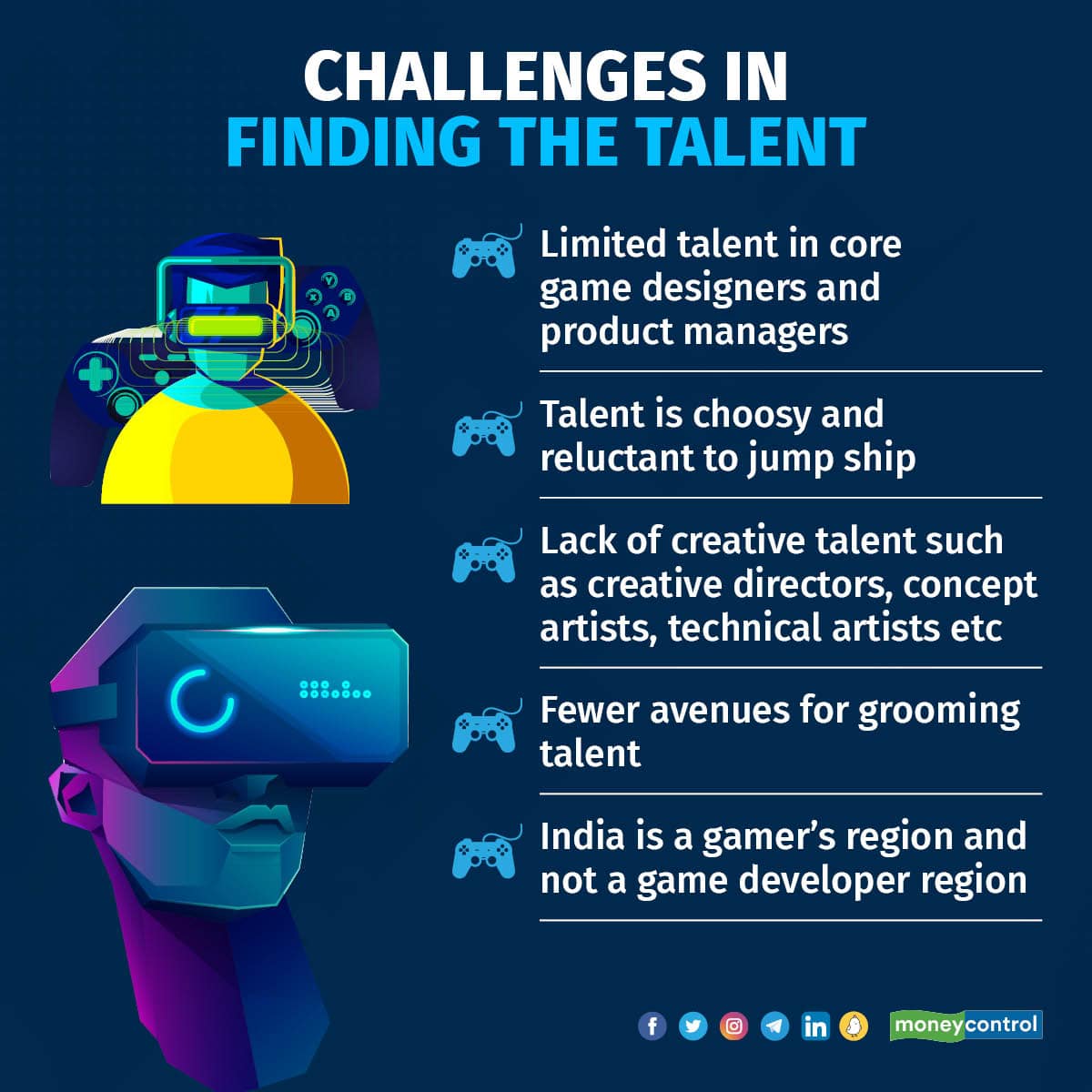
Calling India a gamer’s region and not a game developer region, Juhi Hajela, vice-president of global marketing at now.gg and BlueStacks, believes the nation would start seeing gamers and developers focusing more on regionally relevant games and narratives in 5 years.
Presently the key challenge in finding the right talent is that most resources are trained in traditional skills, and lack full knowledge of gaming, she said.
Hajela feels gamers are inclined to become freelancers and use platforms like Twitch and YouTube to earn through gaming instead of investing in other skills like coding, marketing or content.
Tech roles remain the backbone
The sports tech sector has seen significant growth and consequently an increase in career opportunities. For Kevin Freitas, chief human resources officer of Dream Sports, technology is the backbone of this industry and hiring for roles in tech products, data analytics and design is a focus area.
“Candidates need to have an appetite to upskill to stay ahead of the game. With the onset of 5G and developments in artificial intelligence (AI), machine learning (ML), AR/VR (Artificial Reality and Virtual Reality) and the metaverse, there is the need to keep learning and also be ready to fail,” he said.
ALSO READ | Silver lining amid startup lay-offs: Sectors hiring for recently axed roles
Dream Sports defines its culture as DO-PUT – data obsession, ownership, high performance, user-first and transparency. DOPUT also defines how the company hires – culture-fit and passionate individuals who are open to solving complex technical problems and can make data-based decisions to offer a world-class user experience.
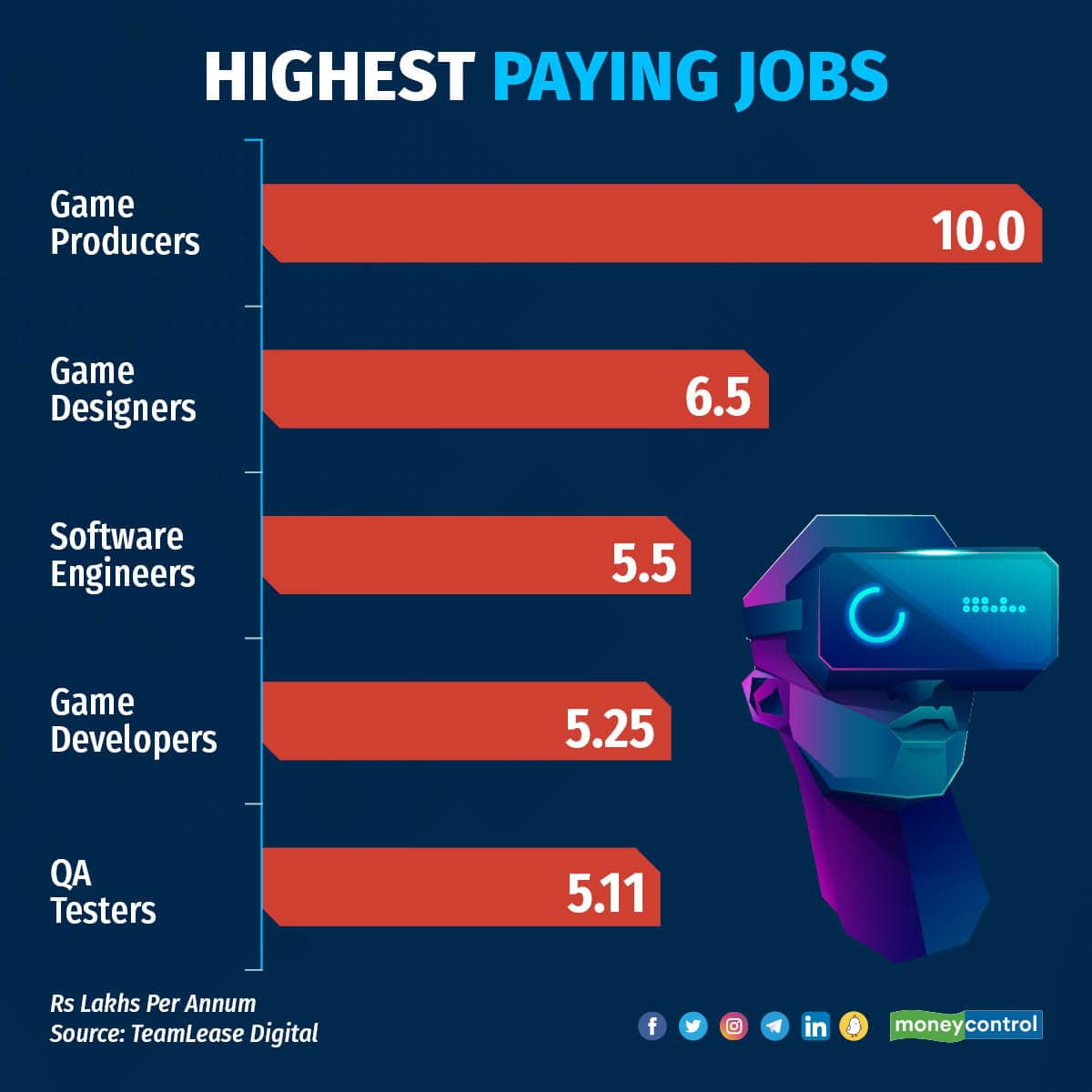
“Currently, our focus is to hire in design, product and tech roles such as software/backend engineers, data scientists, data architects, Machine Learning (ML) engineers, User Experience (UX) designers, product management and strategy experts with a mindset and passion for sports,” Freitas added.
How can candidates prepare themselves?
Human resource experts in the gaming industry believe that everyone in India is a gamer in some way, considering how all kinds of games, from casual to hardcore, have become extremely popular in the country.
Educational qualifications required by the industry range from a Bachelor’s degree Computer Application in Software and Diploma in 3D, 2D, Animation and VFX to MTech / BTech in information technology and Diploma in specialised languages like C++, Java and DevOps, TeamLease Digital says.
Ruchika Chawla, head of human resources at gaming company Rooter, points out that the industry gives young people an opportunity to convert their passion and interest in gaming into a career.
“Those who understand different nuances in gaming, engage with like-minded people who can help them build their learning in this space, will find this industry to be a good fit for them.”
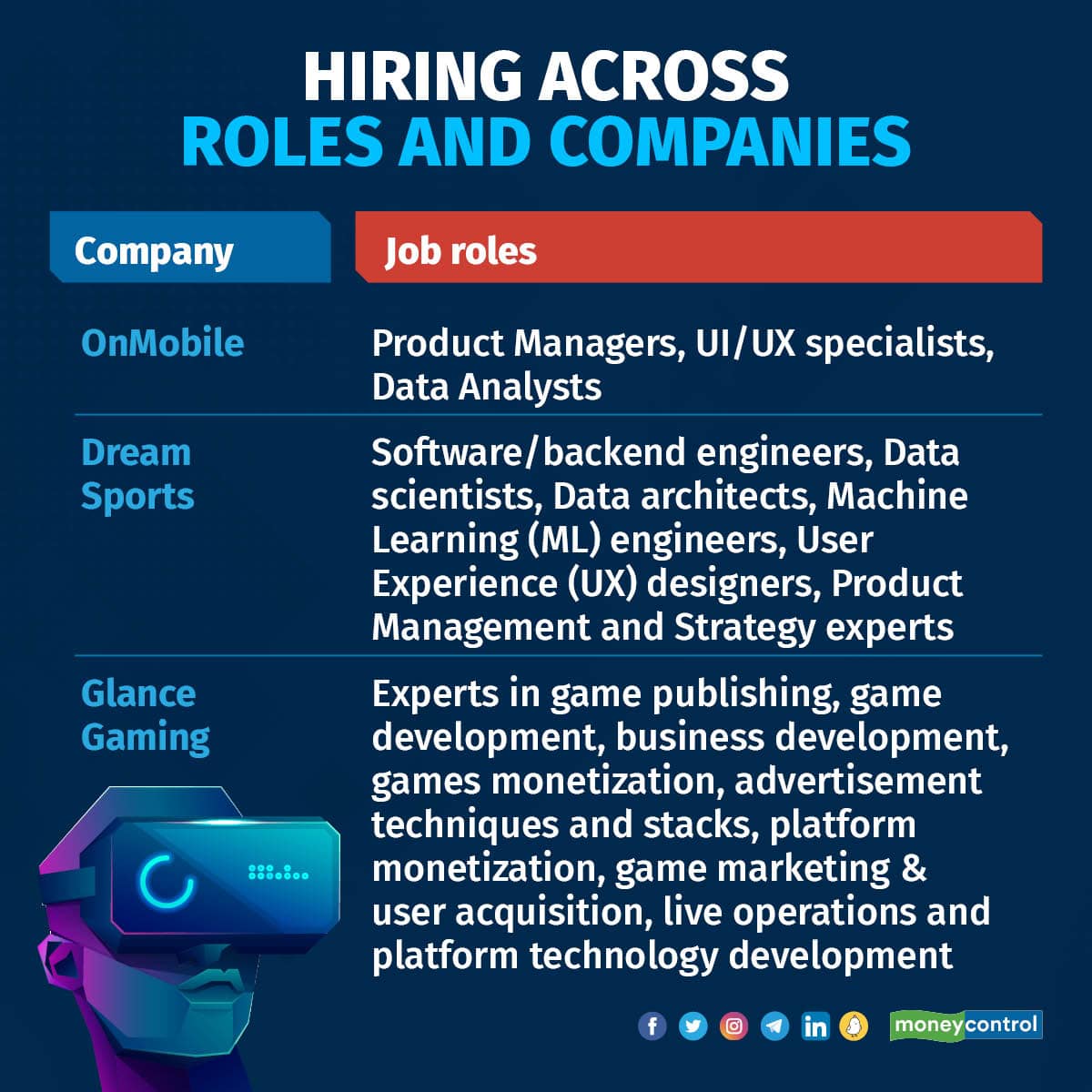
Since the gaming industry is currently at a very nascent stage in India, industry leaders say it isn’t as glamorous as few other pre-established entertainment industries.
“The ROI (Return on Investment) on gaming is relatively low compared to a few other industries, a majority of individuals having passion along with talent choose to switch their line of work,” said Yash Pariani, founder and Chief Executive Officer of House Of Gaming.
ALSO READ | Analysis: Which engineering degree is the most lucrative
Candidates who have a passion to becoming an Esports player or a content creator need to spend endless hours on practice and need to be aware of how to keep the audience engaged, he said.
How to approach the gaming industry?
Yashashvi Takallapalli of Glance Gaming feels a lot of career options in gaming will depend on the depth of knowledge and skills a candidate possesses rather than the breadth.
“For business operations and product management, broad-based skill sets will work well.”
He said the technical team that will produce a game needs to have depth in specific areas like programming (game programming, backend programming, LiveOps tools development), game design (this further breaks down to the level design, economy design, narrative design), and 3D art (character modelling, object painting) and project management (budgeting, control).
Also, Takallapalli pointed out that in the gaming industry, a certain level of cross-knowledge and interest is essential. A game engineer should be able to work on lighting for a game without any guidance from the artist or designer and similarly, artists need to have the skill of processing, integrating and testing the art in the game too.
“This is a great plus for candidates as this would bring greater efficiency to game production,” he said.
India is a majorly FPS (First Person Shooter) or Battle Royal gaming region but an understanding of all gaming genres is important, said Hajela of BlueStacks.
“Most game development happens on popular gaming engines like Unity, Unreal, Godot or CryEngine, among others,” she said, adding, “Training on these is essential.”
ALSO READ | Fintech startup to introduce ‘attitude bonus’: Good but tricky initiative?
Besides, new mediums like Web3, cloud gaming and metaverse are at the cusp of development and in the next few years, she said we can imagine new standards and interfaces being developed on these technologies.
“For marketers, content writers and community managers, understanding new social mediums Discord and Reddit are a must. The capability to engage gamers through content on channels like YouTube, Instagram or Twitch is essential,” Hajela said.
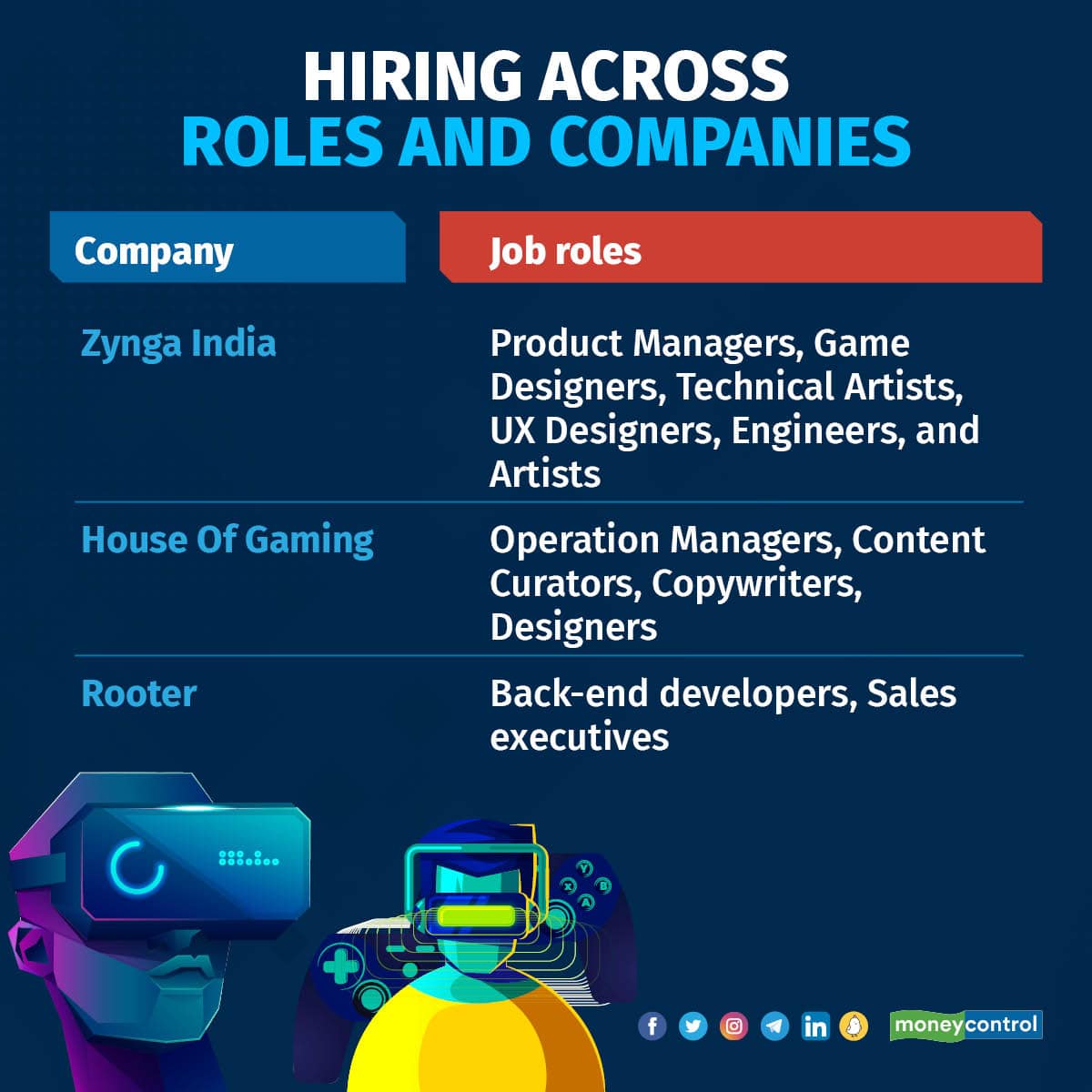
Though hard skills are a must with games being a tech-focused industry, experts say the importance of soft skills can’t be denied. It is extremely important that the candidate is a good team player and genuinely cares about others in their team, they said.
“This is because game creation requires the highest level of collaboration among a group of individuals with very different skill sets,” said Ratheesh Mallaya, director of products at Zynga.
In a nutshell, he said the ability to collaborate deeply, genuine care for others in their teams, taking the initiative and questioning the status quo are some of the skills that Zynga looks for in a candidate.
